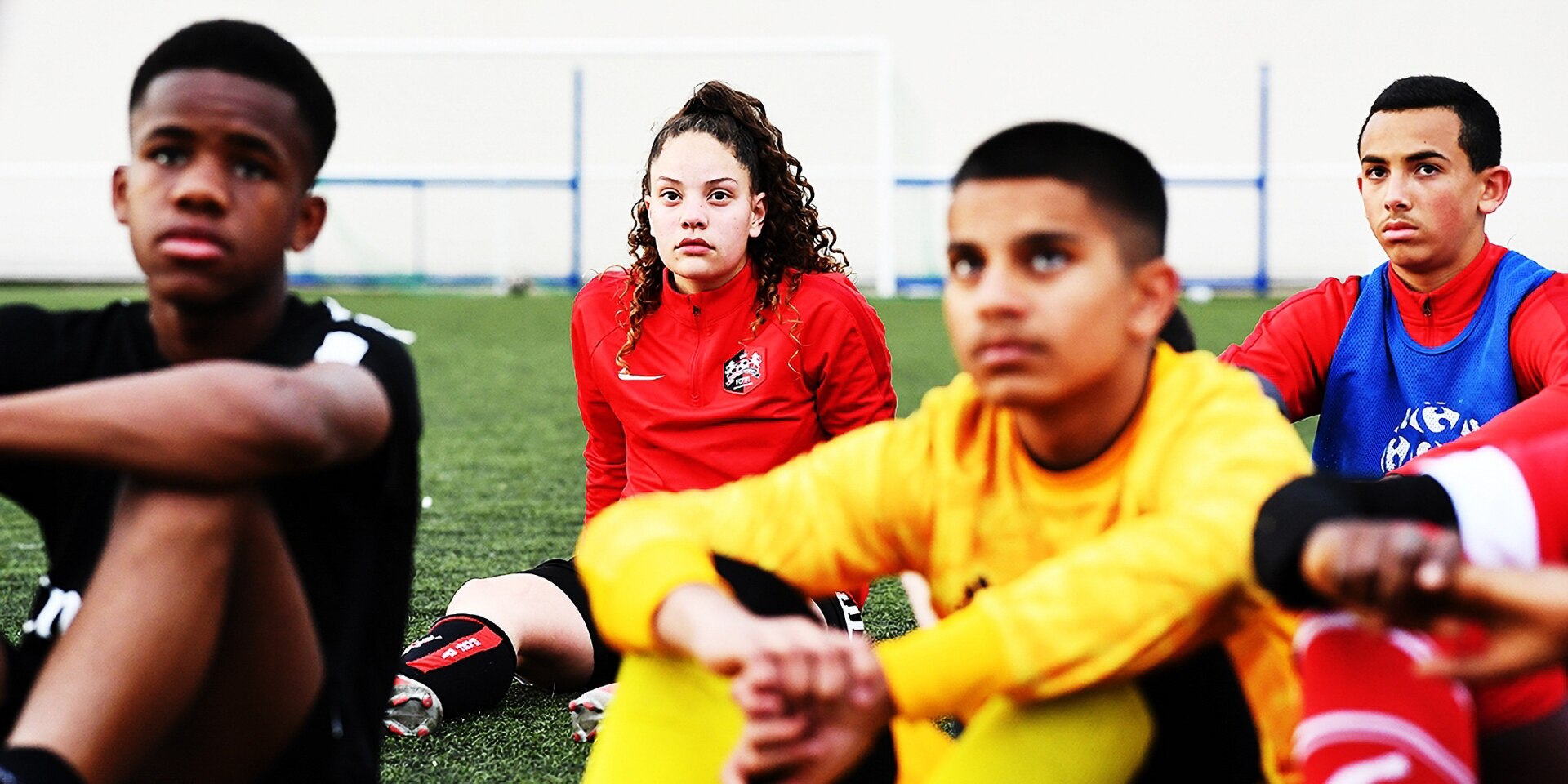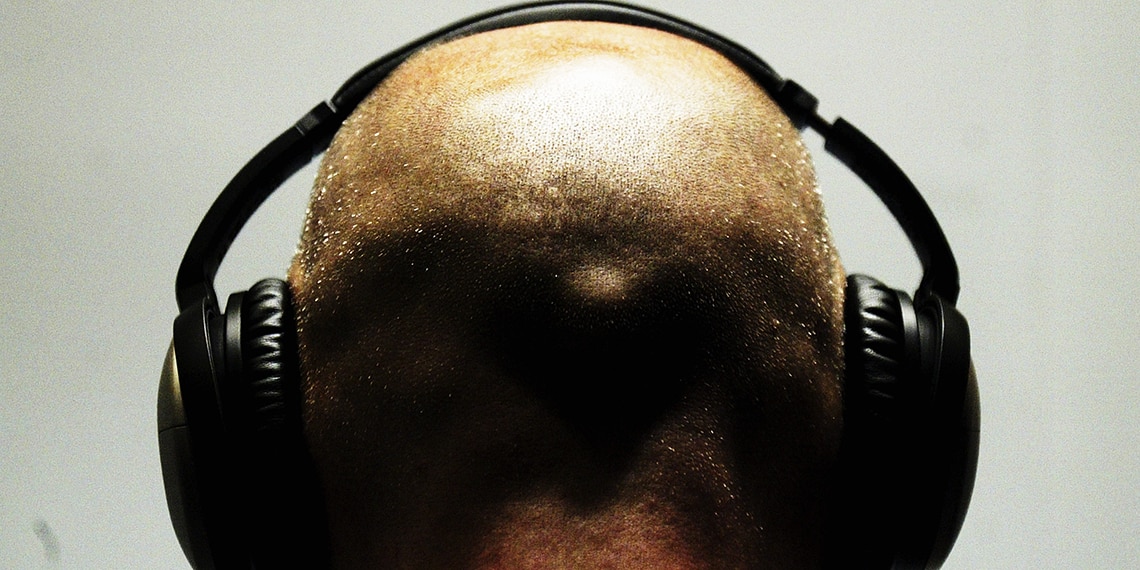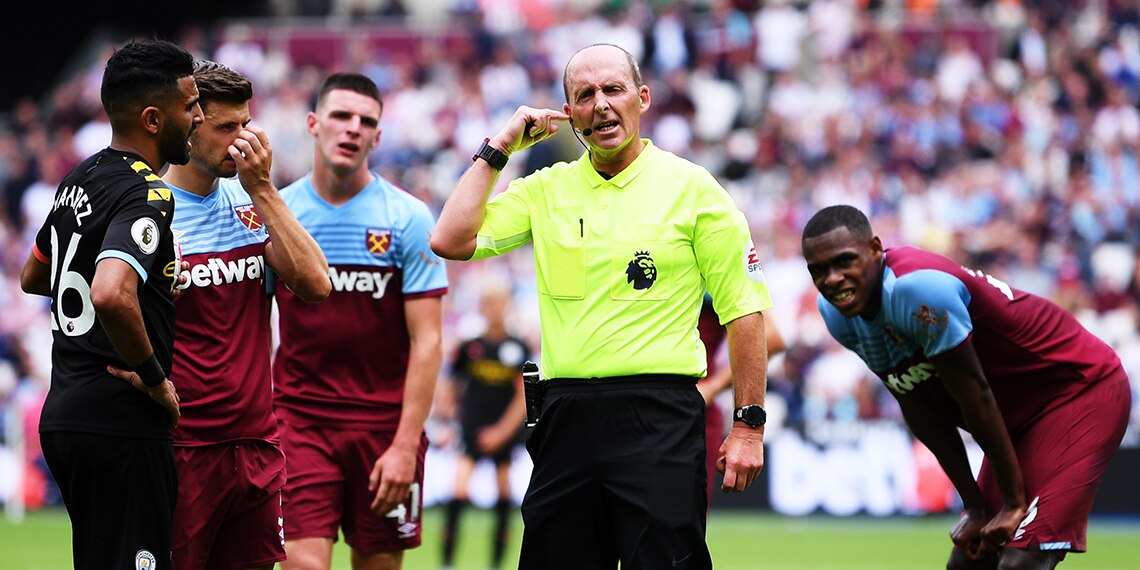Learning Vocabulary: Hear & Listen
Introduction
Jack: Hello my name’s Jack
Rowan: My name’s Rowan
Rich: and I’m Rich and welcome to this week’s Premier Skills English podcast.
Jack: In the Premier Skills English podcast, we talk about football and help you with your English.
Rowan: Don’t forget you can find the transcript for all our podcasts on the Premier Skills English website.
Rich: In this week’s podcast we are going to concentrate on two words that are more difficult than they first appear. Those two words are: hear and listen.
Jack: In our roleplay this week, I’ve got some big news about our podcast - about this podcast - and I want to make sure that Rowan and Rich are listening.
Rowan: In the roleplay, there will be lots of examples of the words hear and listen and how the words are used.
Rich: Sometimes hear and listen can be used in the same way with little change in meaning and sometimes the words have very different meanings and need to be used in very different ways.
Rowan: And there are also some phrasal verbs with listen and hear that we include in the roleplay.
Jack: After the roleplay, we will look at all of this in our language focus and we think you will learn how to use these words better in more situations.
Rowan: Your task this week is to tell us about some things that you listen to and things that you hear.
Rich: If you are listening to us on Apple Podcasts or Spotify or any other podcast platform, you should also check out our website.
Jack: On the Premier Skills English website, you’ll find the transcript, examples and activities to help you understand the language, and a task for you to complete with other listeners.
Rowan: Before we do the roleplays let’s look back at last week’s football phrase.
Last week’s Football Phrase
Rich: OK, our football phrase. If you’ve not listened to the podcast before, every week we set our listeners a challenge. We explain a football phrase or word and you have to guess what it is.
Jack: When you know the answer, go to the Premier Skills English website and write the word or phrase in the comments section for this podcast. If you’re correct we’ll announce your name on next week’s podcast.
Rowan: Thanks for all your answers last week. The first listener with the correct answer was WSanta from Argentina. Well done WSanta!
Rich: And congratulations to these other listeners who also got the correct answer to our football phrase: MoBeckham, Burak01 and HSN from Turkey, Abdlrhmn from Egypt, Hayato and Yoshichika from Japan, Ranj from Norway, Alex from Ukraine, Daniel Baron from Colombia, Marco Zapien, Adonai73 and Vic from Mexico, Jacek from Poland, Mohamed Kuna from Sudan and Emmanuel from France.
Jack: If you didn’t hear last week’s football phrase, we’re going to give you one more chance to guess now. And later on, at the end of the podcast, we’ll tell you the answer. Are you ready?
Rich: Last week’s football phrase was *********. This word is used when a team wins four trophies in a season but I don’t think it’s ever been done before in the Premier League. Teams have won the double, teams have won the treble but no team has ever won the *********.
Jack: Last week’s podcast was about reading and we visited a library and your task was to tell us about a book that you have read. Thanks for all your answers - we had lots of them and thanks for your recommendations. I now have a few more books on my reading list.
Rowan: Hai Vu from Vietnam has recently read The Lord of the Rings by J.R.R Tolkien and would recommend it to anyone who hasn’t read it. I would agree with you Hai Vu - it’s definitely worth reading.
Rich: Burak01 from Turkey told us about a book by Stefan Zweig an Austrian author and a book called A confusion of feelings. He mentioned that this is a book of short stories and he would recommend it - it was also chosen as one of the hundred best books of the 20th century by Le Monde in France.
Jack: And MoBeckham from Turkey has recently read a book called The little book of Manchester and probably now knows more about Manchester than me, Rich and Rowan put together!
Rowan: There are more book recommendations from our listeners on the website. If you want to make a recommendation take a look at the comments section for last week’s podcast.
Rich: If you haven’t heard this podcast it’s called Learning Vocabulary: The Library and you can find it on the Premier Skills English website or on Apple Podcasts.
Introduction to roleplay 1
Rich: As we said earlier, in this week’s roleplay Jack has some big news about the Premier Skills English Podcast.
Rowan: While you listen to the roleplay we want you to try to answer two questions.
Jack: Question one is: What’s my big news?
Rich: Question two is: What do I think is bigger news than Jack’s big news?
Roleplay
Rowan: Have you heard from Jack? He said he was going to call.
Rich: Did he say what about?
Rowan: No, he just said listen out for my call.
(phone call)
Rich: Speak of the devil.
Jack: Hey, Rich. How are you doing? Can you hear me OK?
Rich: No, I can hardly hear you.
Jack: Sorry, I’m listening to the radio. Let me turn it down. Hold on.
Rich: That sounds better. What’s up?
Jack: Have you heard the news?
Rich: No, I haven’t got the radio on. What news?! Is it Neymar signing for Liverpool?
Jack: Neymar? Never heard of him! It’s not football transfer gossip - it’s much bigger than that.
Rich: Go on then. Rowan’s here too. She’s listening in.
Jack: Tell her not to be so nosey. Only kidding. Put it on speaker and listen up … over 6 million people have now listened to our podcast!
Rowan: Six million listeners! That’s more people than live in the whole of Wales.
Jack: I know. It’s a big number. Did you hear that, Rich?
Rich: I did. Six million. Wow! A lot of people have heard our podcast and even more have heard about it - I’ve told my dad about it but he never listens. Is that six million people every week?
Jack: I’m not sure how it’s counted - maybe we’ve listened six million times between the three of us. I don’t care really. Let’s go out and celebrate? I’ll buy the drinks.
Rowan: Did you hear that?
Rich: Yeah, six million listens.
Rowan: You weren’t listening, were you? Jack said he’d buy the drinks.
Rich: Wow! That’s the biggest news I’ve heard in ages. I’ll get my coat.
Language Focus 1: Meaning & Use
Rowan: Before the roleplay, we asked you two questions. The first question was: What’s Jack’s big news?
Jack: My big news was that our podcast has had 6 million listens. We are very happy about this so thanks to all of you for listening.
Rowan: And our second question was: What does Rich think is bigger news than Jack’s big news?
Rich: Well, it’s that Jack decided to buy the drinks for us all - just joking Jack!
...
Jack: In our language focus this week we are concentrating on two words: hear and listen.
Rowan: You may have noticed we used these two words a lot in this week’s roleplay. Hear and listen are similar in meaning and sometimes they can be used in the same way when we are talking about sound.
Jack: Hearing is your sense - it’s what your ears do. If you are deaf, then you can’t hear properly. When you’re awake, you’re constantly hearing things, but you might not be listening to them.
Rowan: Listening is an action - it’s what you choose to do. You choose to listen - to pay attention.
Jack: Listen to these examples:
Rich: Have you listened to that new song? Have you heard that new song?
Jack: Here listen and hear are being used in pretty much the same way and have almost the same meaning.
Rowan: More often, the two words have different meanings - they are used in different ways. Listen to the answer to the question you just heard:
Rich: Have you heard that new song?
Rowan: No, I haven’t heard it. I’m going to listen to it later.
Jack: We’d normally use listen in this answer - it would be strange to say I’m going to hear it later.
Rich: We use listen or listen to when we actively listen - when we pay specific attention to a sound.
Rowan: In this example, we also use going to - going to is used for specific plans or intentions so we are much more likely to say ‘I’m going to listen to it later’.
Rich: We use hear when we describe sounds that we hear by chance or accident or we want to talk in a more general way. Let’s hear a different answer to the same question.
Rowan: Have you heard that new song?
Rich: No, I haven’t heard it. I’ll probably hear it at some point though. It’s bound to be on the radio.
Jack: In this answer, Rich has no specific plans to listen to the song so he can use the verb hear.
Rowan: We also use hear to talk about ability - it’s common to use the modal verb can with hear. Listen to the start of the roleplay again:
Jack: Hey, Rich. How are you doing? Can you hear me OK?
Rich: No, I can hardly hear you. Can you call me back?
Rowan: We might say ‘can you hear me’ or ‘I can hardly hear you’ when we are on the phone or we are in a noisy place - we are talking about the ability to hear sound.
Rich: Another way of thinking about the difference between hear and listen is that hear is an event and listen is an action.
Rowan: Listen to these three examples:
Rich: We woke up when we heard a bang in the middle of the night.
Jack: I have to listen very carefully when I’m having a conversation in a foreign language.
Rowan: Can you hear that noise or is it my imagination?
Rich: These three examples would sound strange or have different meanings if we changed hear for listen or vice versa.
Jack: The meaning is usually clear because of the context of a conversation but not always. Have a listen to these two examples and think about the context or situation the speaker might be in.
Rowan: Listen to this.
Rich: Can you hear that?
Jack: Every morning, I listen to music in my garden.
Rowan: Every morning, I hear music in my garden.
Rich: Listen to these examples again and think about when someone might say these sentences and what the situation is and let us know what your answers are in the comments section on the Premier Skills English website.
Rowan: Listen to this.
Rich: Can you hear that?
Jack: Every morning I listen to music in my garden.
Rowan: Every morning I hear music in my garden.
Language Focus 2: Form
Rowan: Another difference between hear and listen is that we don’t usually use the I N G or -ing form with hear when talking about sound but we can use the I N G or -ing form with listen. Listen to this example from the roleplay:
Jack: Sorry, I’m listening to the radio. Let me turn it down. Hold on.
Rich: That sounds better. What’s up?
Rowan: And here’s an example that you may have heard in a classroom before:
Jack: Did you hear what I just said?
Rich: Sorry, sir. I wasn’t listening.
Rowan: We don’t normally use the I N G or -ing form with hear. When we use hear to describe something happening in the present we often use ‘can’. Listen to these examples:
Jack: I can hear you really well. I can hear the radio. I can’t hear - can you be quiet, please.
Rich: So, we don’t use hear in the I N G or -ing form when it’s a verb but you may hear it in the gerund form when it is acting as a noun.
Jack: I love hearing the sound of the crowd when our team score a goal.
Rowan: We might also use the I N G or -ing form when we talk about people who are deaf or partially deaf which means they can’t hear or have problems hearing people. The best term to use is ‘people with hearing loss’.
Jack: Listen has a few more noun forms than hear. When we talk about people who listen we talk about listeners. This podcast has six million listeners.
Rich: We spoke about the number of listens in the roleplay although this is a bit unusual. It’s more common to use this form in the phrase have a listen.
Rowan: Encourage all your friends and anyone who is learning English to have a listen to this podcast. I’m sure they’ll enjoy listening.
Language Focus 3: Phrasal Verbs
Rowan: We’ve looked at how we use the words hear and listen in connection to sound and in this final section we’re going to look at some phrasal verbs with listen and hear which we used in the roleplay.
Jack: As with many phrasal verbs these have non-literal meanings so they may not be directly connected to the main verb.
Rich: Have a listen to this part of the roleplay again. Listen for two phrasal verbs; one with hear and another with listen:
Rowan: Have you heard from Jack? He said he was going to call.
Rich: Did he say what about?
Rowan: No, he just said listen out for my call.
Jack: The first phrasal verb we want to look at is to hear from. Rowan asked ‘Have you heard from Jack?’
Rich: To hear from is used to describe someone being in contact with you - this could be by phone, email or even a letter.
Rowan: Have you heard from Jack? Has Jack been in touch? Has Jack been in contact with you?
Jack: The other phrasal verb from the audio we just played was to listen out for. This verb has three parts: listen out for. Rowan said that they needed to listen out for my call.
Rich: To listen out for something means to listen very carefully for something that makes a sound. In the roleplay, this was a mobile phone.
Rowan: Another common example is when someone might call at your house: Can you listen out for the door? I’m expecting a parcel to be delivered.
Jack: This is quite informal - the door doesn’t make a noise by itself but we’re talking about the delivery person who may ring the doorbell or knock on the door.
Rich: Right OK, now you’re going to listen to another part of the roleplay again. We want you to listen for some phrasal verbs with hear and listen:
Jack: Neymar? Never heard of him! It’s not football transfer gossip - it’s much bigger than that.
Rowan: Go on then. Rowan’s here too. She’s listening in.
Jack: Tell her not to be so nosey. Only kidding. Put it on speaker and listen up … over 6 million people have now listened to our podcast!
Rich: The first phrasal verb in this section is to hear of. To hear of has a couple of meanings but the most common is when it’s used to describe things or people that we have no knowledge of.
Rowan: Jack said he had never heard of Neymar. He was saying that he doesn’t know who he is.
Jack: Of course I have heard of him - this was just an example. We can use hear of for places and things, too. Have you ever heard of Esperanto?
Rich: Never heard of it - is it a type of coffee?
Rowan: I’m going on holiday next week?
Jack: Where are you going?
Rowan: Galway.
Jack: Galway? Never heard of it. Is it in Portugal?
Rich: The next phrasal verb I want to look at is to listen in. To listen in means to listen to what someone else is saying - often secretly.
Jack: Rich said that Rowan was listening in to our conversation. It wasn’t a secret though so Rich put his phone on speaker.
Rowan: I think people are always listening in on my conversations. MI5 are listening in on my phone, the CIA are listening in on my Amazon Alexa and the KGB are listening in on my Skype conversations.
Rich: Wow, Rowan! That is proper paranoia!
Jack: Another phrasal verb we used was listen up. We use this when we want a group of people to listen carefully because we have something important to say.
Rowan: In the roleplay, Jack said put the phone on speaker and listen up!
Rich: I think listen up is more common in American English but we still use it sometimes. I might say it when I’m teaching a class: listen up everyone, I need to tell you about an exam we have next week.
Jack: OK, we’ve looked at quite a lot of language connected to hear and listen. You can check your understanding of these words and phrases and more of the vocabulary we used in the roleplay on the website.
TASK
Rowan: In this week’s task, we want you to tell us about things you listen to and things you hear.
Rich: We spoke about things we listen to being actions and things we hear being events in the podcast. I think this helps us understand these words better.
Jack: Here are some questions we would like you to answer. Try to choose at least one question from each set.
Rowan: What do you listen to at home? What do you listen to in the car or on the train or bus? Who do you really listen to?
Rich: Are you scared when you hear a strange noise in the night? What can you hear from the window in your house or flat?
Jack: Tell us about a famous person we won’t have heard of. Tell us about someone you haven’t heard from for a long time.
Rowan: Try to use some of the language we have introduced in this week’s podcast when you write your answers in the comments section on the Premier Skills English website
Football Phrase
Rich: It’s time for this week’s football phrase. Have you got one Rowan?
Rowan: I have. This week’s football phrase is ****** ***. This phrase is used to refer to the return match in a tie that consists of two games. Manchester City and Chelsea played very well at PSG and Real Madrid this week but they have to finish the job in the ****** ***.
Jack: Yes, great results for the English teams in Europe this week - we could have an all-Premier League Champions League Final
Rich: Let’s see if anyone gets the football phrase right and who is first this week. If you are still wondering what the answer was to last week’s football phrase it was quadruple.
Rowan: If you have a football phrase that you would like us to use in the podcast, just get in touch and let us know.
Jack: Right, that’s all we have time for this week! Don’t forget to write your answers to our questions and make a guess at our football phrase in the comments below. If you get it right, we’ll announce your name on next week’s podcast.
Rich: If you have a question for us about football or English you can email us at premierskills@britishcouncil.org
Rowan: or you can leave your questions and comments on the website in the comments section or on our Facebook page.
Jack: or you could give us a rating and a fantastic review on Apple Podcasts.
Rich: Bye for now and enjoy your football!












Log in or register to post comments